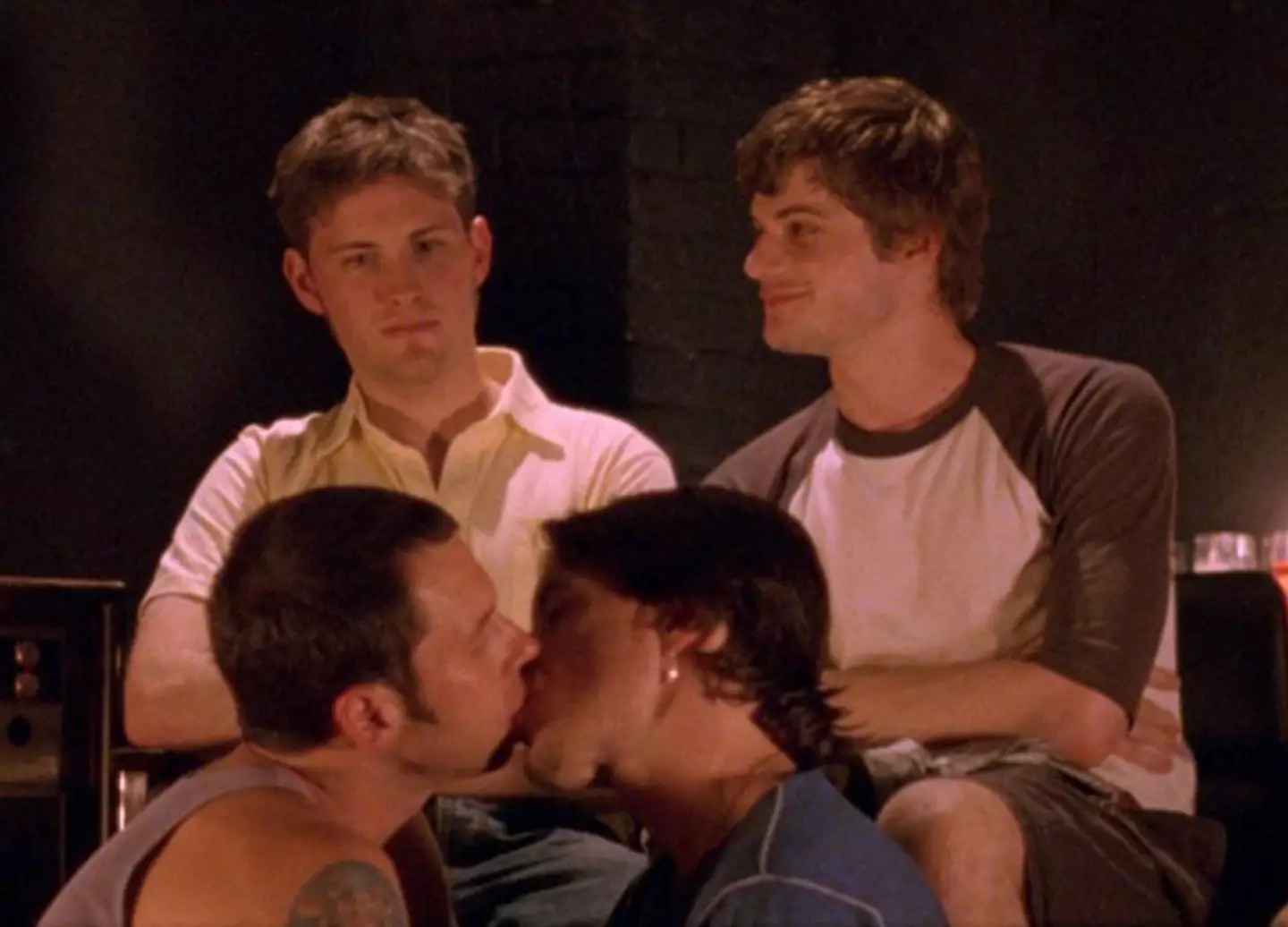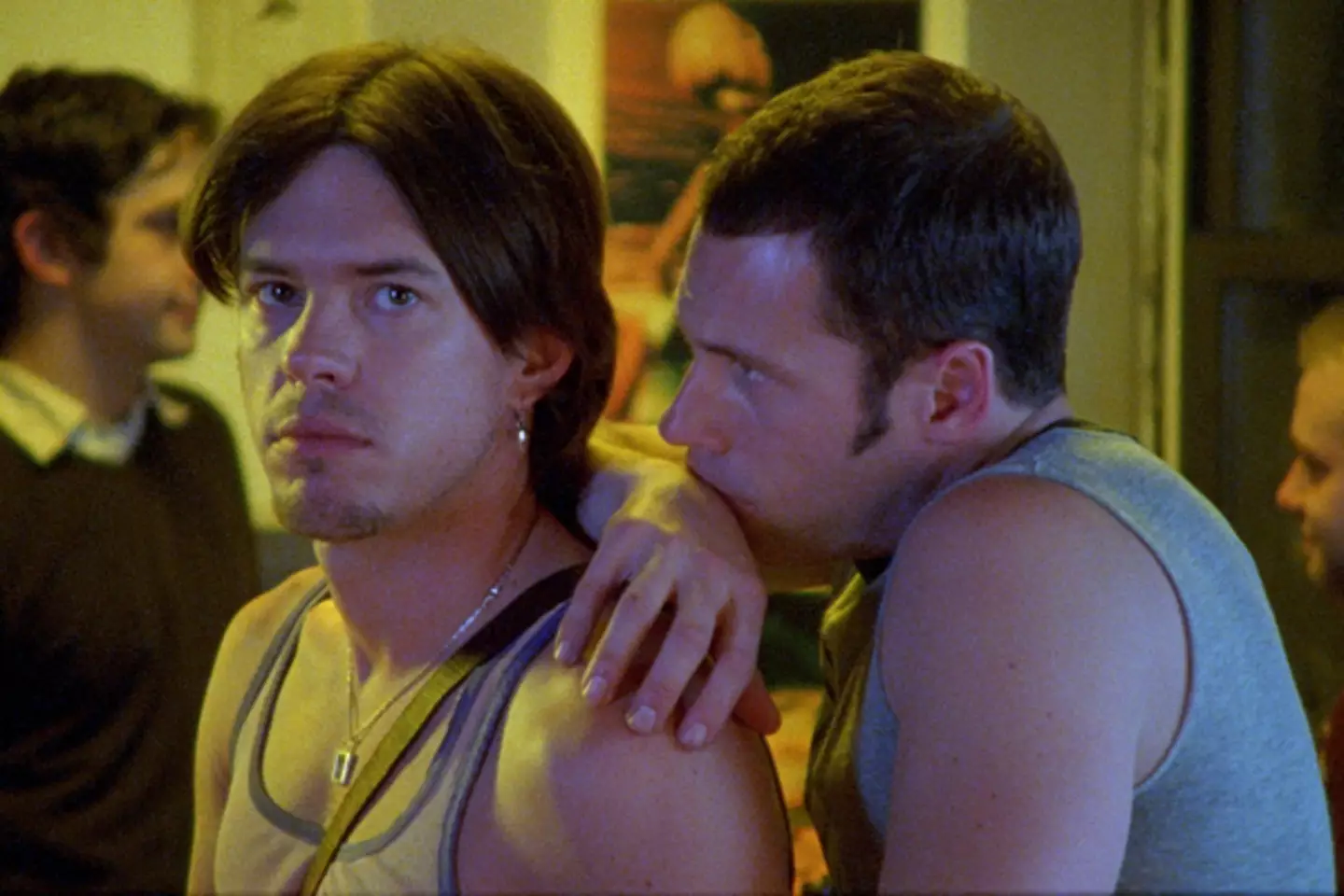As joyous, silly sex scenes seem to be largely absent from the big screen nowadays, a subversive 2006 movie has gained a loyal following for its unsimulated intimate sequences and its ability to capture a moment in time.
The film, written and directed by John Cameron Mitchell, is an independent explicit comedy using sex as a life-affirming way to connect in post 9/11 New York City.
Premiering at Cannes 18 years ago in 2006, it became known for featuring ‘real unsimulated sex’, with scenes including penetrative intercourse and male ejaculation.
Yep, this one certainly leaves little to the imagination.
 The film premiered at Cannes back in 2006 (THINKfilm)
The film premiered at Cannes back in 2006 (THINKfilm)
The film, titled Shortbus, revolves around a Brooklyn artistic/sexual salon inspired by various underground gatherings taking place across the city at the time.
The casting process saw Mitchell and his team watching about 500 tapes that were sent to production following an open casting call.
The filmmaker then invited 40 people for a rather crowded chemistry reading, and ultimately cast nine stars before any dialogue was written.
Shortbus takes its name from the fictional sexual salon the protagonist, sex therapist Sofia Lin (Sook-Yin Lee), attends hoping to achieve her very first orgasm.
 Shortbus revolves around a Brooklyn artistic/sexual salon inspired by various underground gatherings taking place across New York City (THINKfilm)
Shortbus revolves around a Brooklyn artistic/sexual salon inspired by various underground gatherings taking place across New York City (THINKfilm)
In a lacklustre marriage to Rob (Raphael A Barker), Sofia is encouraged by two of her patients, couple James (Paul Dawson) and Jamie (PJ DeBoy), to go down this route of self-discovery, striking a friendship with dominatrix Severin (Lindsay Beamish) and having Rob attend Shortbus with her.
The film currently sits at a 69 percent critics’ score on review aggregator website Rotten Tomatoes, with reviews ranging from raving about its inherent heartwarming quality to being less than impressed with its mostly improvised acting.
Re-released in 2022, Shortbus has reached cult status to the point that journalist Mark Harris, who hung out on set with Mitchell and a bunch of hopefuls in 2003, questioned if it’d even get made today.
Harris muses that it’s not Shortbus’ explicit content that would raise eyebrows in the noughties, but the fact that its sexual scenes are not framed within an escapist, late-capitalist context.
 “You’ve got to get on to get off” (THINKfilm)
“You’ve got to get on to get off” (THINKfilm)
To the writer, Shortbus’ post 9/11 optimism is what wouldn’t resonate with modern sensibilities and, tragically, what made the movie an indie hit.
“It’s a movie full of joy and delight — not just in sexual discovery and self-discovery, but in the awkward, itchy, uncomfortable, embarrassing stuff, in the fact that sex is messy because people and their feelings are messy,” Harris wrote for Vulture.
“In a way, the movie’s conviction that the mess is part of the fun seems like its most transgressive aspect.
“Today, contemporary sensibilities might demand that the sex in Shortbus be framed as a refuge or escape within a late-capitalist dystopia, instead of an invitation to get naked and jump in, in a city that glows with various secret pleasures just waiting to be unlocked.”
Featured Image Credit: THINKfilm
Topics: Film, Cannes Film Festival



